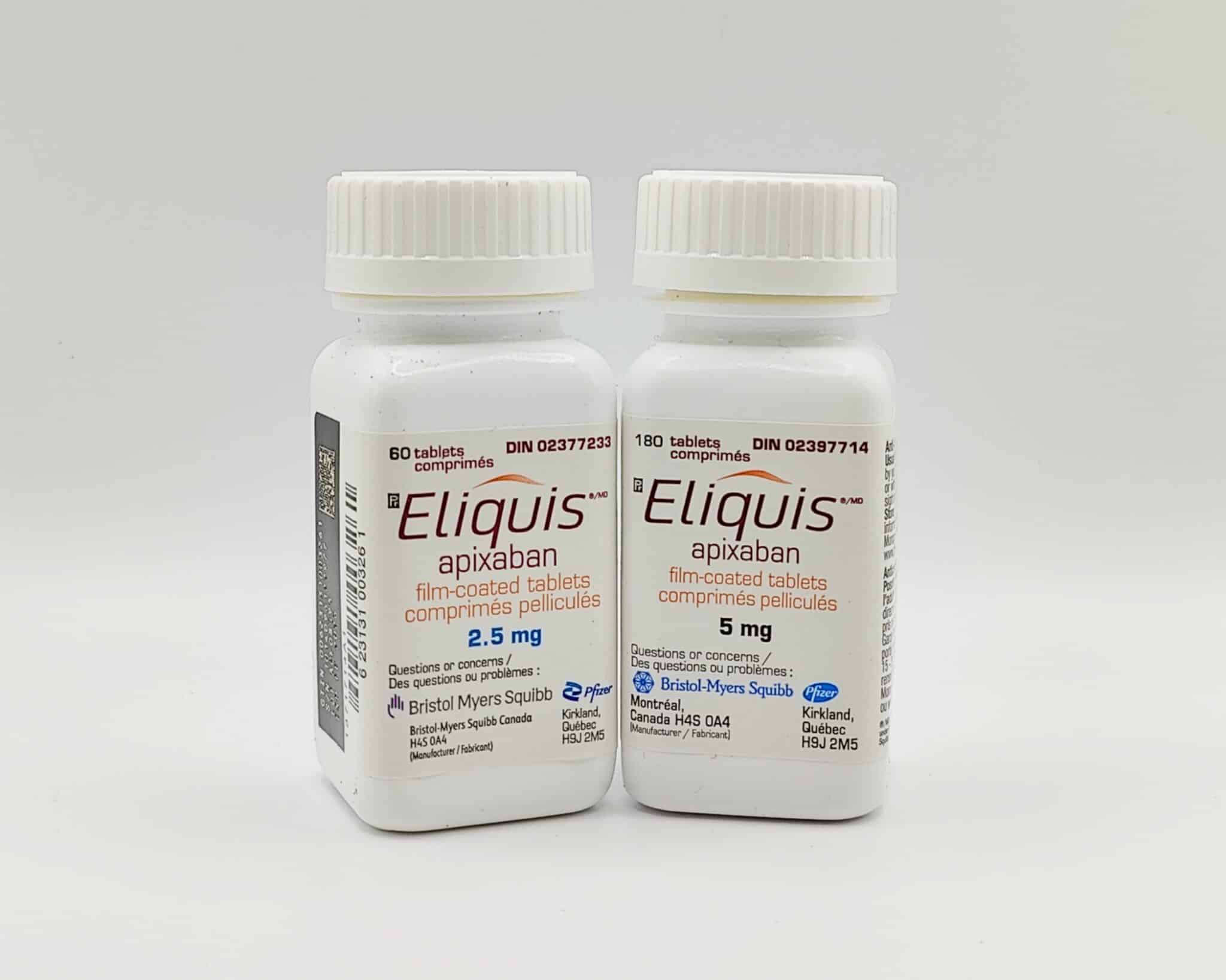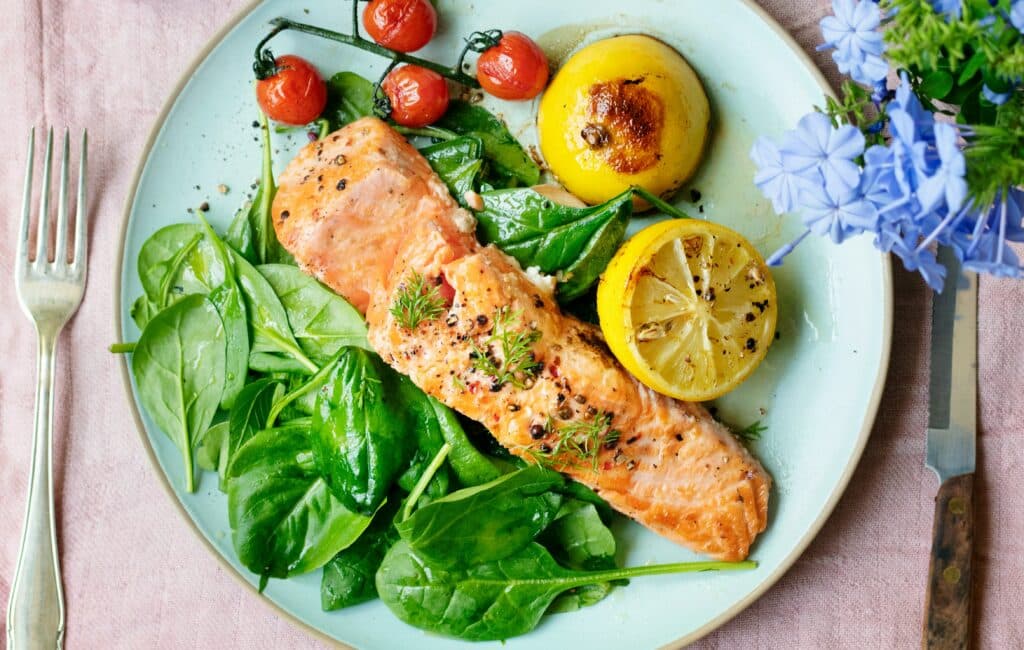Heart-Healthy Foods to Support Cardiovascular Medications: What to Eat and Avoid
Heart-Healthy Foods to Support Cardiovascular Medications: What to Eat and Avoid
- Jason K
Heart disease is one of the leading causes of death in the United States, and for many, medications like Eliquis, Xarelto, and beta-blockers play a critical role in managing conditions like atrial fibrillation, high blood pressure, or past stroke. But medication is only part of the story. What you eat can significantly impact your heart health and how well your medications work.
If you’re taking cardiovascular medications, it’s important to know which foods help protect your heart—and which could potentially interfere with your treatment.
Why Diet Matters When Taking Heart Medications
The food you eat can affect blood pressure, cholesterol levels, clotting, and the way your liver processes medications. A heart-friendly diet supports your overall treatment plan and helps reduce the risk of future cardiovascular events.
Some foods enhance the effectiveness of your medication, while others can lead to side effects or reduced drug absorption. Maintaining a consistent and balanced diet is key to staying stable on therapy.
Top Heart-Healthy Foods to Include
Here are some of the best foods to include in your diet if you’re living with cardiovascular disease:
Leafy greens
Spinach, kale, collard greens, and arugula are rich in nitrates, which help lower blood pressure. They’re also packed with vitamins and minerals that support vascular function.
Whole grains
Oats, barley, brown rice, and whole wheat products help reduce LDL (bad) cholesterol levels and improve blood sugar control.
Fatty fish
Salmon, mackerel, sardines, and tuna provide omega-3 fatty acids, which have been shown to reduce inflammation and lower the risk of heart attacks and strokes.
Nuts and seeds
Almonds, walnuts, flaxseeds, and chia seeds are rich in heart-healthy fats, magnesium, and plant-based protein.
Berries
Blueberries, strawberries, and raspberries are high in antioxidants that support blood vessel function and reduce oxidative stress.
Avocados
A good source of monounsaturated fat, avocados help reduce cholesterol and support weight management.
Legumes
Beans, lentils, and chickpeas are excellent sources of fiber and plant protein that can help regulate blood pressure and improve heart health.
Olive oil
A staple of the Mediterranean diet, extra virgin olive oil has anti-inflammatory properties and supports healthy cholesterol levels.
Foods to Limit or Avoid
Some foods may negatively affect your heart or interact with your medications. While you don’t have to cut these out completely, limiting them can improve your outcomes.
High-sodium processed foods
Canned soups, packaged snacks, frozen dinners, and fast food can cause fluid retention and increase blood pressure.
Trans fats
Often found in margarine, pastries, and fried foods, trans fats raise LDL cholesterol and lower HDL cholesterol.
Sugary beverages
Sodas and sweetened juices contribute to weight gain and increase the risk of diabetes and heart disease.
Excessive alcohol
Drinking too much alcohol can raise blood pressure, contribute to irregular heart rhythms, and interfere with how medications are processed.
Excess red or processed meat
High intake of saturated fat and preservatives in meats like bacon and sausage can increase heart disease risk.
Medication-Specific Dietary Tips
If you’re taking cardiovascular medications, consider the following food-related guidelines:
On Eliquis or Xarelto (blood thinners):
Eliquis and Xarelto do not require avoiding vitamin K, unlike warfarin. However, it’s still a good idea to maintain a consistent, balanced diet. Avoid grapefruit and grapefruit juice, which can affect how these drugs are broken down in the liver. Alcohol should be used cautiously due to bleeding risk.
On beta-blockers (e.g., metoprolol, atenolol):
Watch your sodium intake and avoid large quantities of caffeine, which may reduce the medication’s effect. Weight gain is a possible side effect, so a heart-healthy, calorie-conscious diet can help.
On ACE inhibitors (e.g., lisinopril, enalapril):
These medications may raise potassium levels. Avoid salt substitutes containing potassium and limit high-potassium foods like bananas and oranges if advised by your doctor.
Meal Planning Tips
- Choose fresh, whole foods over packaged items
- Prepare meals at home using herbs instead of salt
- Follow the DASH or Mediterranean diet guidelines
- Read labels carefully for sodium, sugar, and fat content
- Try batch cooking heart-healthy meals to avoid last-minute takeout
Small, consistent changes in your eating habits can lead to major improvements in your blood pressure, cholesterol, and overall cardiovascular function.
Saving on Heart Medications Like Eliquis and Xarelto
The cost of medications like Eliquis and Xarelto can be high in the U.S., especially for patients without insurance or with high deductibles. Many Americans are turning to Canadian prescription referral services to access the same medications at a lower cost.
For example, brand-name Eliquis can cost more than $500 per month in the U.S., but the same medication may be available for up to 50% less through Canadian pharmacies. Generic apixaban is also available in Canada, offering even more savings.
To order safely, patients must have a valid U.S. prescription. Services like Over the Border Meds help U.S. patients connect with licensed Canadian pharmacies and arrange shipping for personal use.
You can upload your prescription at:
https://overthebordermeds.com/upload-prescription-document/
Frequently Asked Questions
Can food affect how my heart medication works?
Yes. Some foods can change how your body absorbs or processes medications. Always check for food-drug interactions with your pharmacist.
Is it safe to drink grapefruit juice while on blood thinners?
No. Grapefruit can interfere with medications like Eliquis and Xarelto by affecting liver enzymes.
Do I need to avoid vitamin K on Eliquis?
No. Unlike warfarin, Eliquis does not interact with vitamin K. You can eat green vegetables, but consistency is always helpful.
What diet is best for people with heart disease?
The Mediterranean and DASH diets are most often recommended. Both focus on fruits, vegetables, healthy fats, and whole grains.
Can I combine diet changes with medication?
Absolutely. A heart-healthy diet supports your treatment plan and may even reduce the need for additional medications over time.
Final Thoughts
What you eat can either support or work against your heart medications. By including heart-friendly foods, avoiding known triggers, and staying consistent with your treatment, you can protect your heart and improve your long-term health.
For those facing high costs on medications like Eliquis or Xarelto, Canadian options may offer a reliable, affordable alternative. Ask your provider if ordering from a licensed Canadian pharmacy is right for you, and consider uploading your prescription to Over the Border Meds to explore your options.


